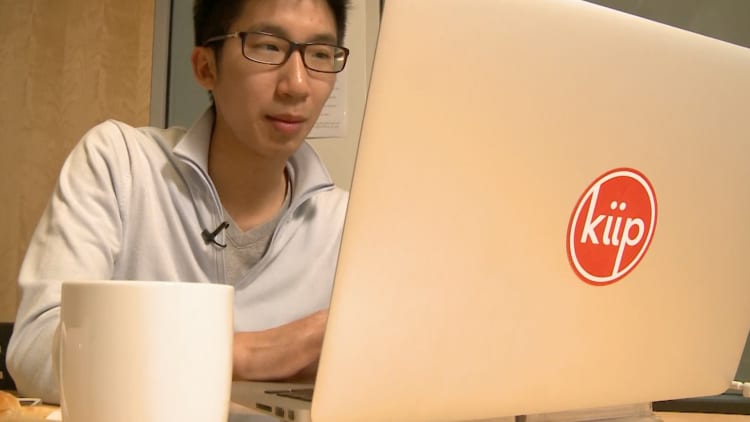A new study found that millennials in Asia are at a substantial cash risk during their later years, expecting to carry mortgage debt into retirement or even run out of money.
The study was conducted by Manulife and surveyed investors born between 1984 and 2004, finding that nearly 90 percent said they expect to be able to maintain or improve their standard of living into retirement, but nearly 30 percent expect to run out of money later on in life.
"Asians used to be known as the prudent consumers with the lowest levels of debt," Roy Gori, president and CEO of Manulife Asia told CNBC. "Today, that's no longer true. In some cases, the level of indebtedness we see in Asia either equals or exceeds that of U.S. consumers, measured by household debt relative to disposable income."
Signs of changing times
Nearly four in ten surveyed noted they expect to financially support both their parents and children at the same time, which could constrain their ability to invest and prepare for retirement.
"Economic growth will be far slower than that enjoyed by their parents," Gori said, citing slower projected income growth for Asian millennials as compared to gen X and baby boomers. That's particularly the case in Hong Kong, China, Singapore, Taiwan and Thailand, he added.
"They are the sandwich generation — no sooner have they financed their children's education, they have to support their aging parents."
For most Asian cultures, familial support has been the bedrock of retirement for generations. But now a shift is taking place with aging populations, declining household sizes and rapid urbanization.
Slower economic growth, coupled by longer life expectancy of their parents, could mean little opportunity for millennials to plan their own personal retirement. "This a double-edged sword because millennials themselves are less likely to receive financial support from their own children when they are aging," Gori said.

Leaving money in the bank
According to Manulife, around 50 percent of investors across Asia are putting their money in bank deposits. In Indonesia, as high as nearly 80 percent of overall financial assets are put in bank deposits, compared to the U.S., where it's only around 20 percent.
"We're in a world of zero interest rates, a situation that has persisted since the global financial crisis in 2008," Gori said, saying he thinks low rates could last another five years.
"A total of 13 years of zero interest rates is a substantial chunk of a millennial's career lifetime," Gori said." "It means that a lot of their savings that go into bank deposits will earn negative real returns. Some millennials will never recover from that."
Millennials need to 'take more risk'
According to Gori, millennials in Asia need to take more risks and invest more heavily in equities.
"Historically, the way Asians have invested is that a large part of their personal wealth was invested in real estate and then whatever other money they had would have been invested in liquid cash deposits," Gori said.
He said that mentality is no longer a realistic savings strategy, especially in Asia's more developed markets.
"There's just no chance that bank deposits will grow in a way that offsets the growth of...expenditures," he added.


